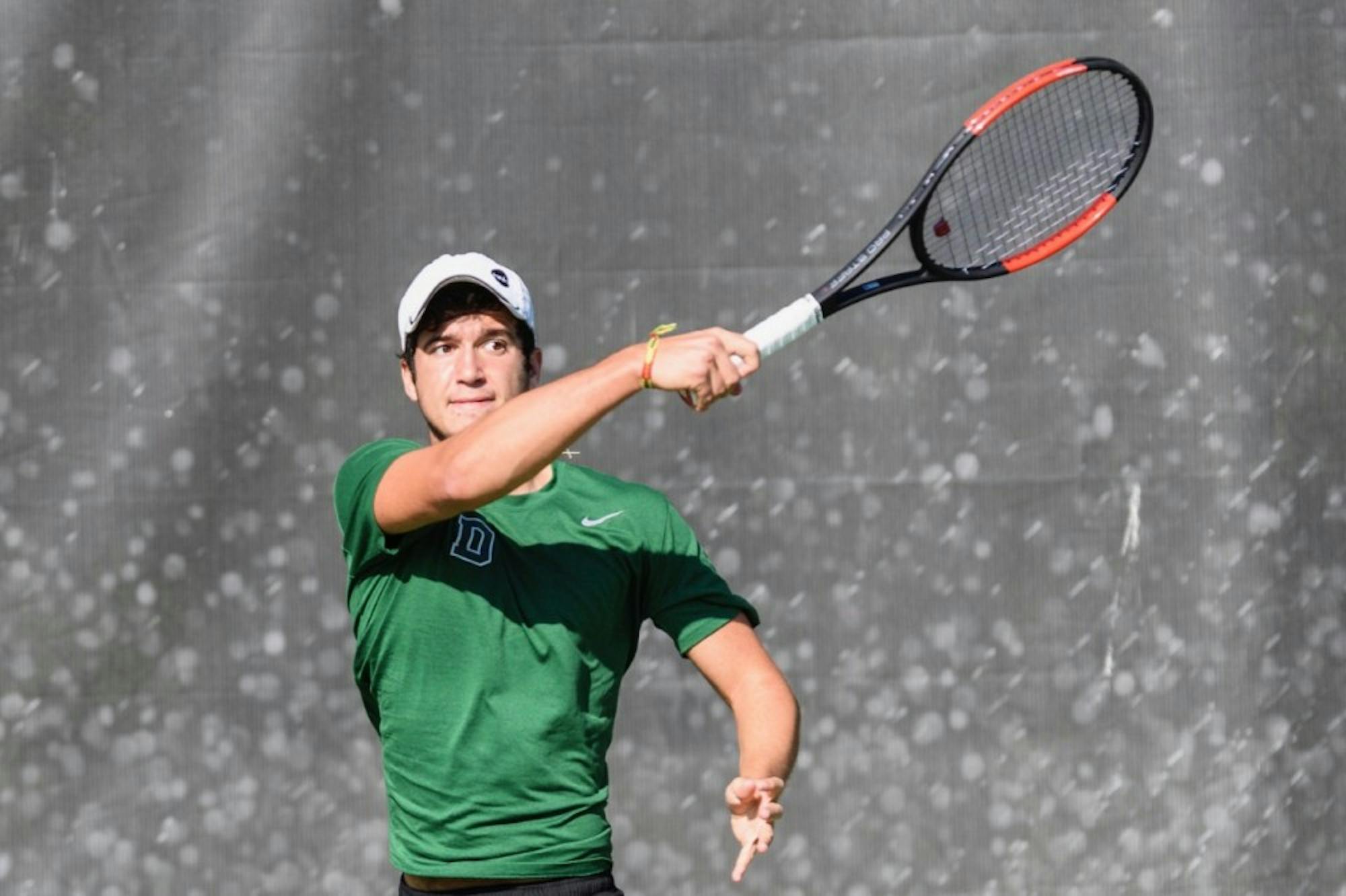Originally from Laval, Québec where he attended Académie Sainte-Thérèse, Dan Martin ’21, is currently playing No. 2 singles for men’s tennis. Despite dropping two matchups last week, the Big Green is competing at a historic level this season, beginning the 2017-2018 season 12-0, its best start in program history. Dartmouth is currently ranked No. 19 in the country, though it previously held the No. 14 spot in mid-February, which was also a program record. Martin, who is currently No. 101 in the Intercollegiate Tennis Association’s Division I men’s national singles rankings, has played an important role on the team all season. In a 5-2 victory over the University of Minnesota on Feb. 9, Martin beat then-No. 34 Stefan Milicevic. Before Dartmouth, Martin finished second at the U16 Canadian Championship and third at the U18 Canadian Championship.
How did you get started playing tennis?
DM: Long story short, my dad was playing tennis with one of his friends, and I was there with them and decided to take a racquet and play by myself on the wall. I was pretty good for a 5 year old. One of the coaches on the next court came to my dad and asked him how long I’d been playing tennis for, and my dad told him I just took the tennis racquet for the first time. The coach saw something special in me and told my dad I should try playing tennis and take courses. I played tennis for fun until the age of 10 or 11 when I started playing tournaments and really became more serious about tennis.
What was your experience playing before coming to Dartmouth?
DM: Before coming to Dartmouth, I was playing local tournaments and doing very well in them. I was also doing some international junior tournaments, but not many because I was going to a full time private school and couldn’t afford to miss one or two weeks of school like other players my age. I kept a great balance between tennis and school all my high school life, and I didn’t want to give up my passion. That is why I took an interest in American colleges, especially Dartmouth.
Why did you choose Dartmouth?
DM: Head coach Chris Drake contacted me and was super professional. He contacted me one day, and three days later he came to Montreal and I met him in person. He saw me practice. He got in touch pretty quickly. The fact that it was so professional and so quick, that was really a good thing. Then I came to visit here, and the guys on the team were great and friendly, unlike some other colleges I had visited. The campus wasn’t too big. Everything seemed to be perfect. And it was only three and a half hours from home. So far, I don't have any regrets coming here.
Is college tennis much different from junior tennis?
DM: Yeah. College tennis is a lot of stress and a lot of pressure.
How close would you say the team is?
DM: We are extremely close. We eat breakfast, lunch and dinner together. We go out together. We hang out together. We study together. There’s very few things we don’t do together. It’s fun to have a group of guys like that who have your back. If you need help, they’re there. You can trust them. Sometimes when we travel around and see other teams, I feel that other teams don’t have the same chemistry that we have.
Last weekend, men’s tennis dropped from 12-0 to 13-2. What happened?
DM: We lost against the University of Iowa on Saturday. I didn’t play because I had shin splits so Drake said I shouldn’t play, and then Charlie [Broom ’20] had four match points, but he couldn’t close the match so we lost. It’s not his fault; he did everything he could. Then on Sunday, I had to step in because Old Dominion University was one of the best teams we’ve played so far. They played so well. We lost pretty badly. We beat Boston University after that.
Would you want to continue playing tennis after graduation?
DM: I think I could give tennis a shot on tour after graduation because I don’t feel the urge to find a job right away and start working. Once I graduate, I do have my diploma. I have the knowledge, and I’m not going to lose that knowledge over a couple years. So I could go on tour for a couple years maybe, and after that, if I can make it, good. If not, I’ll find a job.
This interview has been edited and condensed for clarity and length.




